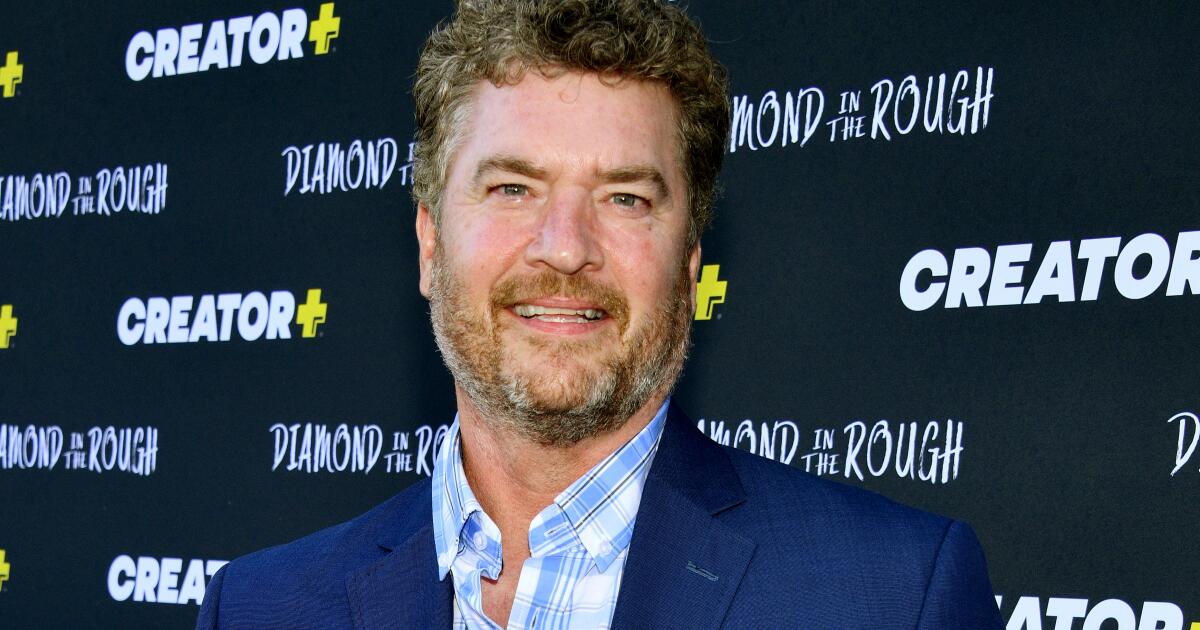In His Three Daughters, director Azazel Jacobs crafts a delicate and tightly-wound meditation on familial grief, spinning what might seem like a run-of-the-mill stage play narrative into a rich, textured portrait of three estranged sisters facing the looming loss of their father. What elevates this otherwise quiet chamber piece into something extraordinary is the triad of mesmerising performances from Carrie Coon, Natasha Lyonne, and Elizabeth Olsen — each offering a distinct vision of how loss shapes us in unexpected, sometimes destructive, ways.
The film’s premise is simple but emotionally charged: three adult sisters — Katie (Coon), Rachel (Lyonne), and Christina (Olsen) — gather in their childhood New York apartment to care for their dying father, Vincent (Jay O. Sanders). What unfolds over the film’s taut runtime is not an Oscar-baity, melodramatic race to the bottom or a Shakespearean struggle for inheritance, but rather an intricate, often quietly devastating examination of what it means to live in the shadow of a loved one’s impending death. Jacobs, also the writer, steers clear of clichés and easy emotional beats, choosing instead to dwell in the unresolved spaces of awkward exchanges and lingering resentments that have festered between these women for decades.
His Three Daughters (English)
Director: Azazel Jacobs
Cast: Carrie Coon, Natasha Lyonne, Elizabeth Olsen, Jovan Adepo, Jay O. Sanders
Runtime: 101 minutes
Storyline: Three distant sisters reunite in NYC to care for their sick father
Coon’s Katie, the eldest and most brittle of the trio, carries the weight of eldest-child obligation with a practiced sense of control. There’s a tension to her every gesture, her clipped speech betraying a woman who has taken on the mantle of responsibility, not out of love, but because someone had to. Katie’s fixation on getting her father to sign a DNR order feels almost villainous in its cold pragmatism, but Coon masterfully hints at a deeper, quieter desperation — an ache to control at least one aspect of an uncontrollable situation.

A still from ‘His Three Daughters’
| Photo Credit:
Netflix
In stark contrast, Olsen’s Christina is a figure of softness, an embodiment of serene, if naïve (and almost crazed), optimism. A devoted wife and mother, Christina’s spiritual calm and mindfulness practices make her seem, at first, ill-equipped to handle the looming tragedy. Yet Olsen imbues the character with an unspoken resilience; beneath the surface of her placid demeanor, there is a profound sadness, a quiet understanding that all the positive thinking in the world cannot stave off the inevitable.
But it is Lyonne’s Rachel who becomes the emotional lynchpin of the film. The pot-smoking, middle child has lived with their father in the family’s rent-controlled apartment for years, watching him deteriorate while numbing herself with sports betting and the hourly blunt. Lyonne’s performance is raw, unvarnished, and deeply telling. There’s a brittle humor to Rachel’s attempts to deflect her sisters’ judgment, but also a vulnerability that cuts deep. She is the one who most visibly carries the emotional scars of their shared history, and Lyonne brings to life that tension, caught between duty, guilt, and the yearning for escape.

The film’s beating heart lies in the unspoken. The apartment itself, where much of the action unfolds, becomes a character of its own — a claustrophobic, memory-laden space where every corner holds the weight of unresolved tensions. Frances Ha cinematographer Sam Levy’s camera captures this with a deliberate, almost voyeuristic gaze, following the sisters as they move through rooms like trapped animals, their every glance loaded with unspoken resentments and unresolved grief.
And yet, Jacobs does not allow the film to spiral into despair. There is a tender, almost hopeful quality to the way the story unfolds, particularly in its final act, where the much-alluded, ailing father, Jay O. Sanders, delivers a single heart-wrenching monologue that reframes everything that has come before it. This shattering scene serves to show how little time we have with the people we love, and how often we squander that time with pettiness, fear, and anger.

A still from ‘His Three Daughters’
| Photo Credit:
Netflix
What makes the direction so profoundly moving is the way Jacobs sidesteps the predictable rhythms of grief drama. He isn’t interested in grand gestures or cathartic blowouts; rather, he lingers in the moments in between — the bitter silences, the half-finished sentences, the fleeting glances that reveal far more than any climactic speech ever could. It’s a film about absence — not just the absence of a father — but the absences that have defined these women’s relationships with each other.
While the film doesn’t build to a typical emotional crescendo, it does reach a quiet, devastating conclusion. There’s no easy catharsis here, no big tearful reconciliation. Instead, Jacobs offers something more subtle and, perhaps, more honest: the idea that grief, like family, is messy, unresolved, and often full of loose ends. The sisters don’t walk away with all their wounds healed, but they walk away. And in the end, that feels like enough.

His Three Daughters is less a film about death than it is about life — about the cumbersome, imperfect ways we try to hold on to the people we love, even as they slip through our fingers. It’s a story of three women who, in their own flawed, fumbling ways, are trying to reconcile the people they have become with the children they once were, and it’s the simplicity of this idea that makes it so brilliantly affecting.
His Three Daughters is currently available to stream on Netflix
Published – September 22, 2024 05:52 pm IST

































